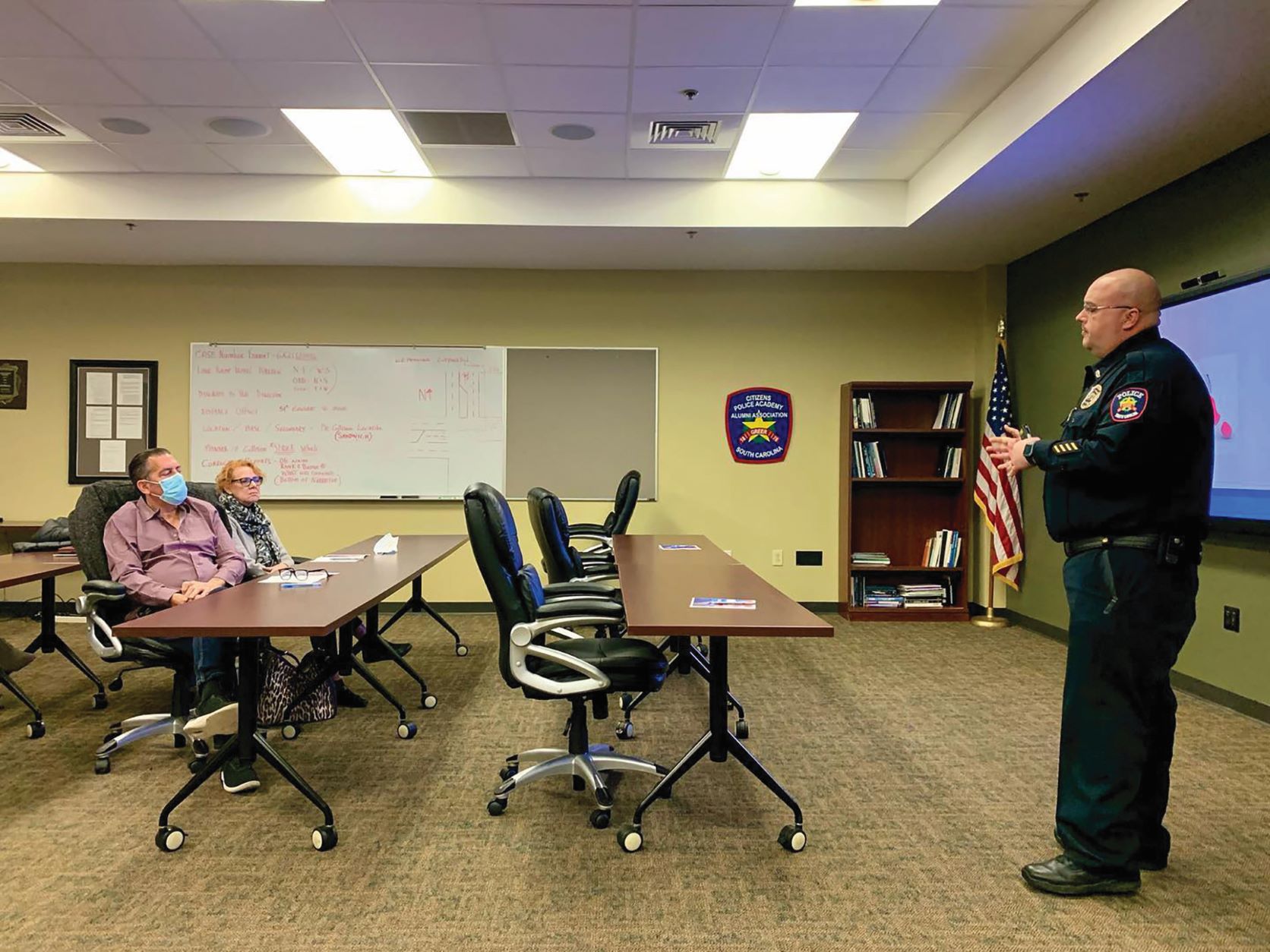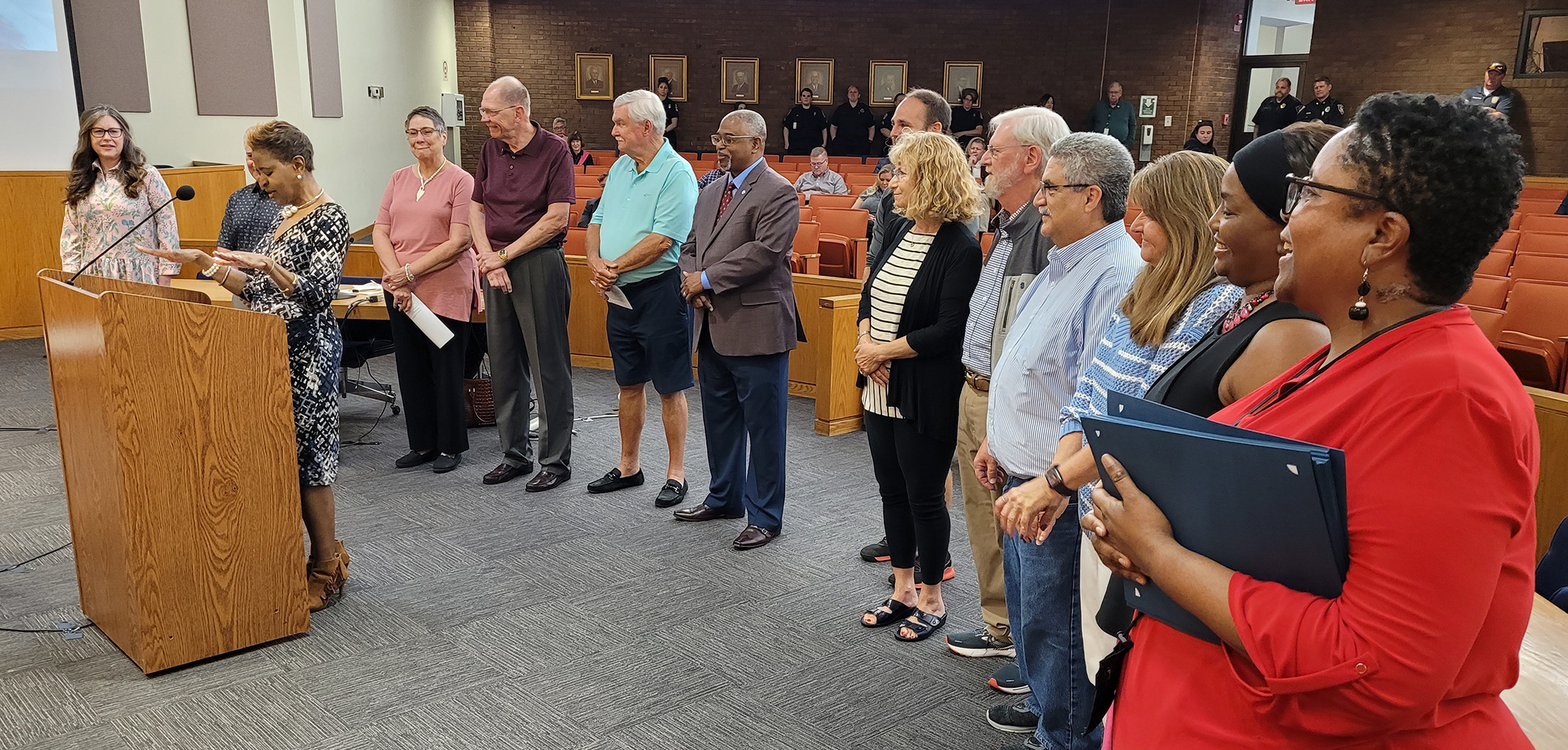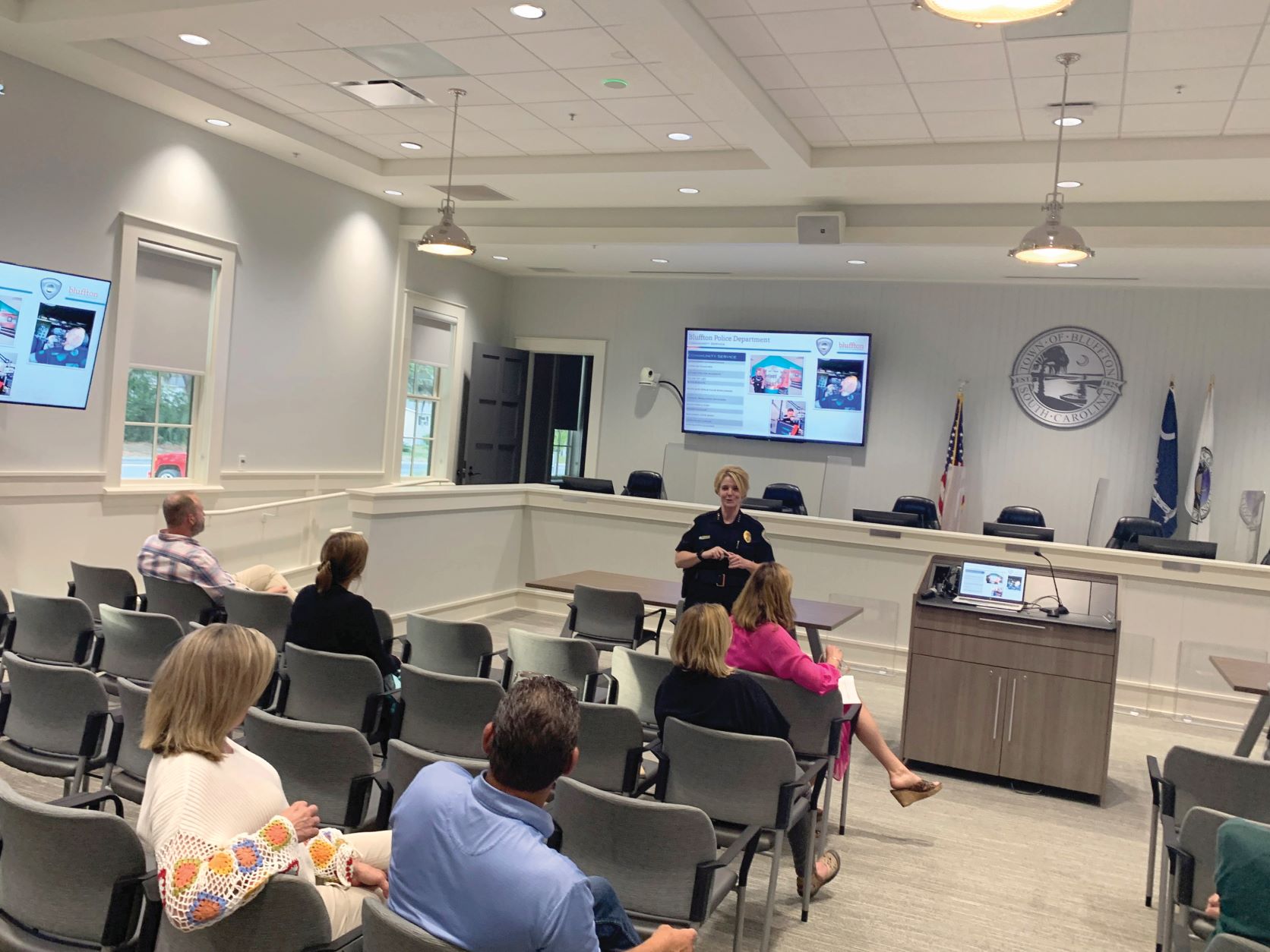Navigating the workings of municipal government can bring residents into contact with unfamiliar processes and rules, no matter if the person is brand new or a lifelong resident.
To help residents better understand their local governments, some cities are offering “Civics 101” classes — multiweek courses that allow groups of residents to get a behind-the-scenes look at how their cities operate and how they can be more engaged in the process of making a city work.
The goals of these programs can go beyond education. They can help increase the pool of residents who are willing to serve on local boards, committees and commissions. They can also cultivate a group of ambassadors to help explain to neighbors and friends how the city operates — overcoming confusion or even anger about the processes.

The City of Greer launched its first Civics Academy in 2021. Photo: City of Greer.
“One of the goals is to get people to be continually involved in government — they may find a passion they didn’t know about, they may join a board or just have a little more input on a board or commission,” said Ayla Fitzpatrick, community/media outreach coordinator for the City of Greer. “We want to continue to engage the people who are passionate about the City of Greer.”
Fitzpatrick recently began working for the City of Greer, and plans to restart its Civics Academy that had just a few classes under its belt before the pandemic shut it down.
The original plan was to identify leaders in homeowners’ associations who might like to participate in the classes and share the information in their neighborhoods.
The first class took place in the spring of 2021 with 25 students. Fitzpatrick is planning a second class this fall 2022. The classes will be two hours every Thursday for eight weeks and will explore each city department. Some classes will take place where the departments operate. Enrollment is open to all city residents on a first-come, first-served basis.
“These might be places the general public might not frequent,” Fitzpatrick said. “We want to give residents an inside look at how Greer operates, not just that these departments exist, but what is it they do.”
Some of the biggest challenges to restarting the program have been identifying those neighborhood leaders and encouraging them to be among the first to take the classes.
“It would be ideal to have ambassadors who have a constituency — people who want to build their communities up and encourage others to do the same thing,” she said.
For other cities like Myrtle Beach, these resident academy classes are an important tool to get newcomers involved in civic life.

The 2022 graduates of the My Beach 101 program appear before Myrtle Beach
City Council. Photo: City of Myrtle Beach.
My Beach 101 began in 2016 and offers classes twice a year to city residents on a first-come, first-served basis, said Neighborhood Services director Mary “Cookie” Goings.
The classes start with a welcome from the mayor and include presentations for every city department, including the police, fire and rescue departments.
“Most of the people in the class are people who just moved here,” Goings said. “We want them to be exposed to the rich history and diversity of our city.”
The last class is something of a sales pitch to interest residents in getting involved.
“One of the last presentations that we do is an introduction to our city’s boards and commissions,” Goings said. “And it is wonderful to see that some of our graduates are involved in those.”
Recent challenges have been pandemic-related, Goings said.
“This past year was the first time we have ever been virtual,” she said. “It was easier to start out virtual then shift to in-person than to go the other way.”
There also were issues with older participants who were not able to go online, so Goings’ team found a location where they could sit at a safe distance and wear masks.
“For the most part, once we were able to gather in person, it was wonderful,” she said.
Goings says sometimes departments have to take tough questions from residents.
“One of the things we tell every department is to be totally transparent,” she said. “If a resident asks a question and we don’t have an answer right then, we will find out and they will get an answer before the next meeting.”
The final class includes a question-and-answer session with the city manager.
“Any question they have that has not been answered, gets answered,” she said.
The Town of Bluffton also has welcomed many new residents as it has been one of the fastest-growing cities in the state. Educating those newcomers about how things work is an ongoing process, said Director of Communications and Community Outreach Debbie Szpanka.
“It’s educate, educate, educate and educate some more,” said Szpanka.

In Bluffton, engagement workshops help residents better understand how their
town government works. Photo: Town of Bluffton.
To accomplish that, Bluffton has taken its resident engagement workshops on the road in a “mobile town hall,” traveling to neighborhood association meetings, large employers and other locations for brief primers on how Bluffton’s government works. The town hall meetings are also available via livestreaming, and the town has been posting “bite-sized” videos of two to five minutes on social media to share the same information.
“Our job and our mission is to bring the water to the horse,” Szpanka said. “We are competing with every soccer game, every dinner that needs to be made, and we totally get that.”
When the program first began as a workshop, Szpanka says the focus was on how to volunteer with boards and commissions — “getting your voice heard.”
In order to educate new residents — many of whom moved to the area during the pandemic and have never see the city council meet in person — the sessions now do a little more to emphasize the cultural history and the inner workings of how things get done in Bluffton.
“Our objectives have changed as the needs have changed,” she said.
The town has also become more traditional in its efforts to reach residents — the mailed newsletter.
“While it is not a tool you hear about frequently these days, we are doing our best to hit every segment of our community and not forcing them to come to us,” Szpanka said. “When we mix it with the news they want to know about, like trash and recycling, you can mix in the other information about roles and parameters in a way they can digest.”
Municipal government might be the kind of government closest to residents’ lives, but it’s often not well-understood. Resident engagement courses can change that — making local government more comprehensible, and with a little luck, more accessible as well.
